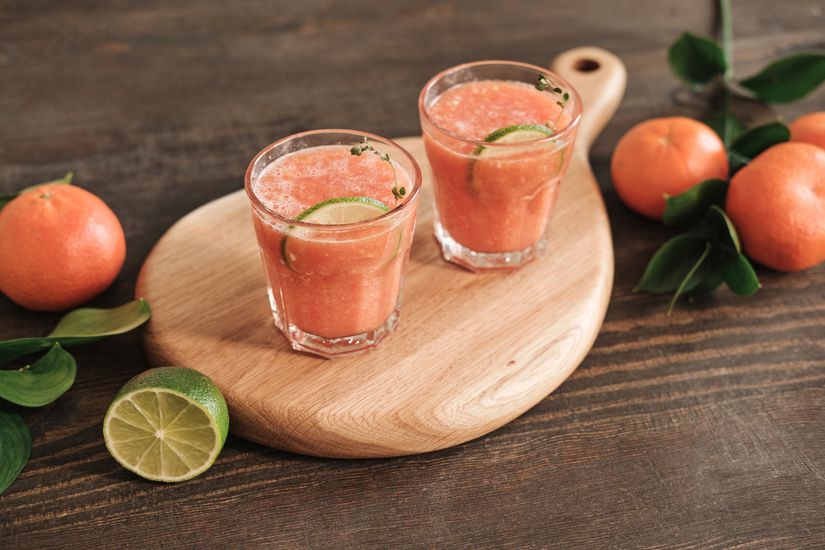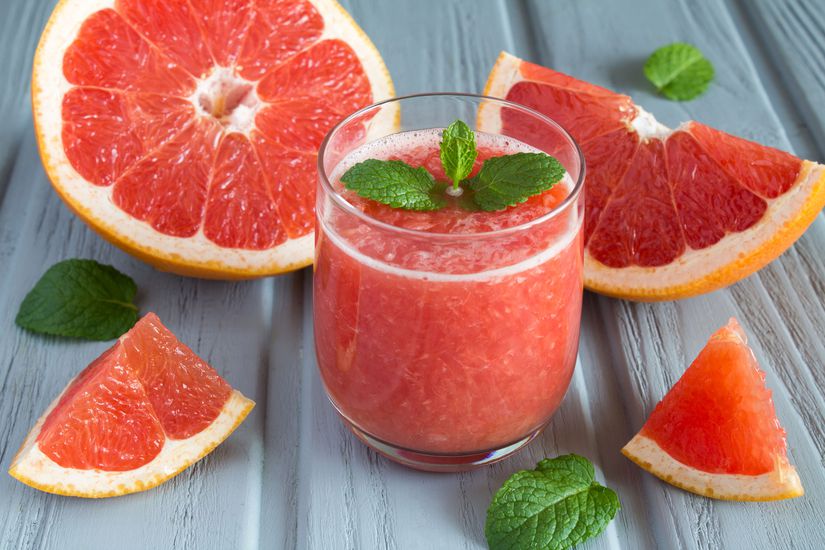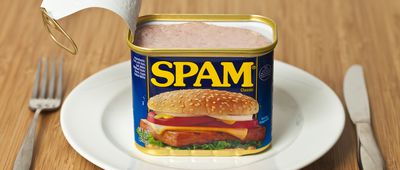In the Pink
Grapefruit juice was a go-to drink back in the day for ladies in leotards looking to slim down. Today, the grapefruit remains a popular citrus fruit and juice — unless you’re on certain meds, when you’re cautioned to avoid it. Read on for the pros and cons of this common fruit that’s found in most every grocery store.
Related: The Surprising Side Effects of Eating Beets, According to Science

























